Mental Health
Mental health refers to a person's emotional, psychological, and social well-being. It affects how we think, feel, and act. It also helps determine how we handle stress, relate to others, and make choices. Mental health is important at every stage of life, from childhood and adolescence through adulthood.
Key Concepts
- Mental Illness: Mental illnesses are conditions that affect a person's thinking, feeling, behavior, or mood. These conditions may affect someone's ability to relate to others and function each day.
- Well-being: Well-being is a state of being comfortable, healthy, or happy.
- Stress: Stress is the body's reaction to any change that requires an adjustment or response.
- Resilience: Resilience is the ability to bounce back from difficult experiences.
- Self-care: Self-care refers to activities and practices that we can engage in on a regular basis to reduce stress and maintain and enhance our short- and long-term health and well-being.
Factors Affecting Mental Health
Several factors can contribute to mental health problems, including:
- Biological factors, such as genetics, brain chemistry, and hormonal imbalances.
- Life experiences, such as trauma or abuse.
- Family history of mental health problems.
- Social and environmental factors, such as poverty, homelessness, or discrimination.
Importance of Mental Health
Good mental health is essential for overall well-being. It enables individuals to:
- Realize their full potential.
- Cope with the stresses of life.
- Work productively.
- Make meaningful contributions to their communities.
Study Tips
When studying mental health, it's important to:
- Understand the key concepts and definitions related to mental health, including mental illness, well-being, stress, resilience, and self-care.
- Learn about the factors that can affect mental health, such as biological, environmental, and social influences.
- Recognize the importance of mental health and its impact on overall well-being and productivity.
- Explore strategies for promoting and maintaining good mental health, including self-care practices and seeking help when needed.
By understanding the key concepts, factors, and importance of mental health, you can gain a deeper appreciation for the significance of mental well-being and its impact on individuals and society as a whole.
[Mental Health] Related Worksheets and Study Guides:
.◂Science Worksheets and Study Guides Eighth Grade. The Digestive System & Nutrition
Study Guide The Digestive and nutrition
The Digestive and nutrition  Worksheet/Answer key
Worksheet/Answer key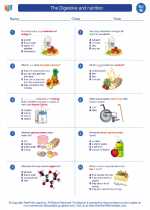 The Digestive and nutrition
The Digestive and nutrition  Worksheet/Answer key
Worksheet/Answer key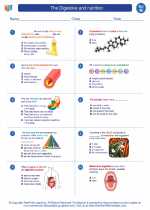 The Digestive and nutrition
The Digestive and nutrition  Worksheet/Answer key
Worksheet/Answer key The Digestive and nutrition
The Digestive and nutrition  Vocabulary/Answer key
Vocabulary/Answer key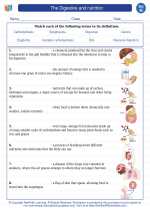 The Digestive and nutrition
The Digestive and nutrition  Vocabulary/Answer key
Vocabulary/Answer key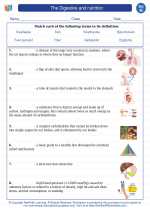 The Digestive and nutrition
The Digestive and nutrition  Vocabulary/Answer key
Vocabulary/Answer key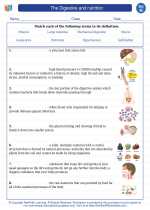 The Digestive and nutrition
The Digestive and nutrition  Vocabulary/Answer key
Vocabulary/Answer key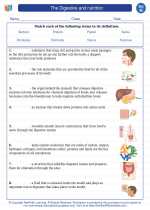 The Digestive and nutrition
The Digestive and nutrition  Vocabulary/Answer key
Vocabulary/Answer key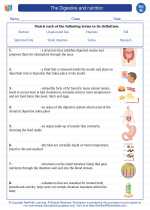 The Digestive and nutrition
The Digestive and nutrition 

 Worksheet/Answer key
Worksheet/Answer key
 Worksheet/Answer key
Worksheet/Answer key
 Worksheet/Answer key
Worksheet/Answer key
 Vocabulary/Answer key
Vocabulary/Answer key
 Vocabulary/Answer key
Vocabulary/Answer key
 Vocabulary/Answer key
Vocabulary/Answer key
 Vocabulary/Answer key
Vocabulary/Answer key
 Vocabulary/Answer key
Vocabulary/Answer key

The resources above cover the following skills:
Reading Standards for Literacy in Science and Technical Subjects
Craft and Structure
Determine the meaning of symbols, key terms, and other domain-specific words and phrases as they are used in a specific scientific or technical context relevant to grades 6-8 texts and topics.